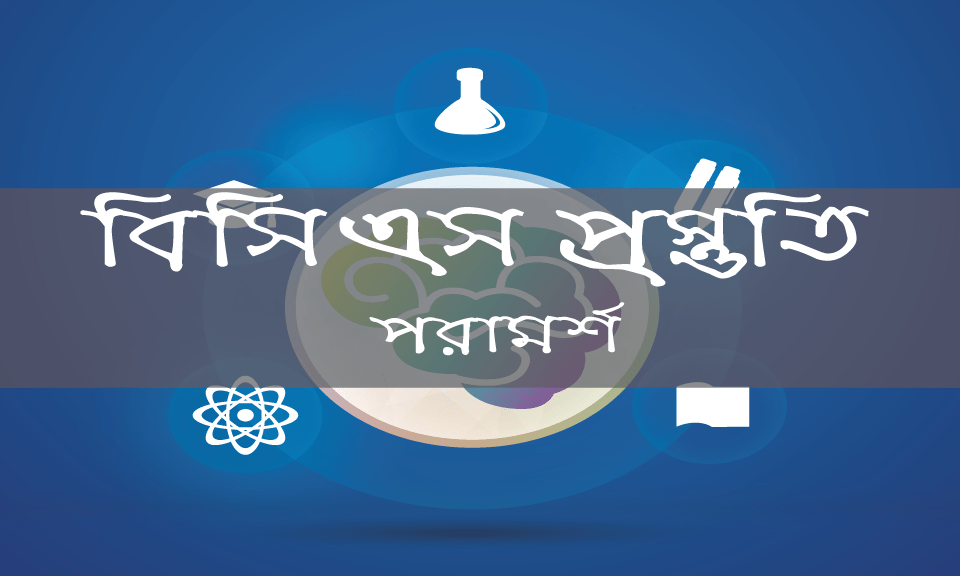
Complex—-Simple—-Compound
(1): Since/as/when যুক্ত complex sentence এর subject যদি same থাকে, তাহলে simple sentence এ পরিবর্তন করতেঃ since/as/when উঠে যাবে, verb এর সাথে ing যুক্ত হবে, subject বসবে, বাকি অংশ বসবে।
For example: Since the boy worked hard, he made a good result. Simple: Working hard, the boy made a good result.
Since/as/when যুক্ত complex sentence কে compound sentence করতে since/as/when বাদ দিতে হবে,প্রথম sentence এর বাকি অংশ বসবে and/and so/and therefore যোগ করে বাকি অংশ অপরিবর্তিতই থাকবে।
For example: Since the boy worked hard, he made a good result. The boy worked hard and made a good result.
(2): Subordinate clause এ be verb থাকলে— am/is/are/was/were এর পরিবর্তে being হবে, have/has/had এর পরিবর্তে having হবে। simple to compound করতে, এই নিয়ম ব্যবহৃত হবে।
For example: Because of his being weak, he could not work hard. He was weak and therefore could not work hard.
(3): যখন দুটি clause এর subject ভিন্ন থাকবে—subordinate clause এর subject বসবে, am/is/are/was/were এর পরিবর্তে being এবং have/has/had এর পরিবর্তে having বসবে, বাকি অংশ বসবে।
For example: Complex: Since the weather was bad, we could not go out. Simple: The weather being bad, we could not go out.
Complex: Since the weather was bad, we could not go out. Compound: The weather was bad and therefore we could not go out. (উভয় ক্ষেত্রে since/as/when বাদ যাবে)।
(4): If clause যদি positive হয়, তাহলে by+ verb এর সাথে ing দ্বারা replaced হয়। If clause যদি negative হয়, তাহলে without+verb এর সাথেing দ্বারা replaced হয়।
For example:
If you work hard, you will succeed in life.
By working hard, you will succeed in life.
If you do not work hard, you will not succeed in life.
Without working hard, you will not succeed in life.
(complex to simple করতে)। Complex to compound করতে if+subject বাদ যাবে, দুটি clause যুক্ত করতে and ব্যবহৃত হবে।
For example: If you work hard, you will succeed in life.= Work hard and you will succeed in life.
(5): Though/although যুক্ত complex sentence কে simple করতে though/although এর পরিবর্তে in spite of/ despite বসে, subject এর possessive form হয়, verb এর সাথে ing হয়।
For example: Though he tried heart and soul, he could not succeed in life= In spite of his trying heart and soul he could not succeed in life.
( Complex to compound করতে) Though/although উঠে যায়, দুটি clause যুক্ত করতে but ব্যবহৃত হয়।
For example: Though he tried heart and soul, he could not succeed in life= He tried heart and soul but could not succeed in life.
(6): Complex to simple করতে so that এর পরিবর্তে to/in order to বসে।
For example: She works hard so that she may prosper in life= She works hard to/in order to prosper in life.
Complex to compound করতে so that এর পরিবর্তে, দুটি clause কে যুক্ত করতে and want/wants to ব্যবহৃত হয়।
Ex—She works hard so that she may prosper in life= She works hard and wants to prosper in life.
(7): So+adjective+that যুক্ত complex sentence কে simple করতে, so+adjective+that এর পরিবর্তে too+ adjective+to হয়।
For example: The old man is so weak that he cannot walk= The old man is too weak to walk.
So+adjective+that যুক্ত complex sentence কে compound করতে and therefore ব্যবহৃত হয়।
Ex- The old man is so weak that he cannot walk= The old man is so weak and therefore cannot walk.
(8): When যুক্ত complex sentence এ when(if mention time), এর পরিবর্তে—for short time—at/for month or season—in/for age—at the age of বসে, simple করার সময়।
For example:
She woke up when it was midnight=She woke up at midnight.
When it is spring, the cuckoo sings= In spring the cuckoo sings.
When Shahida was four she went to school= At the age of four, Shahida went to school.
When দ্বারা যদি কোন continuous fact বুঝানো হয়, তাহলে when এর পরিবর্তে at the time of ব্যবহৃত হয়।
For example: When I was eating, the phone rang= At the time of my eating, the phone rang.
( Complex to compound) করতে, clause দুটি যুক্ত করতে and ব্যবহৃত হয়।
For example: When she woke up, it was midnight= She woke up and it was midnight.
(9): Relative pronoun (who, what, which, that) যুক্ত complex sentence কে simple sentence করতে who/what/which/that বাদ দিতে হবে, verb এর সাথে ing যোগ করতে হবে।
Ex—The doctor who is working in the hospital is known to all= The doctor working in the hospital is known to all.
Verb যদি past participle tense এ থাকে, তাহলে তা অপরিবর্তিত থাকে।
Ex—The picture which was drawn by Liza is very fine=The picture drawn by Liza is very fine.
(10): When we are mentioning two things( either joined by ‘and’ or ‘as well as’) we can transform the sentence using ‘not only’—-‘but also’. Complex to compound করতে not only—but also এর পরিবর্তে and/as well as ব্যবহৃত হয়।
Ex—He not only ate an apple but also drank a glass of milk= He ate an apple and drank a glass of milk. (Compound to complex) is to be done doing Vice-versa.
এই লেকচারের পরের পেইজে যেতে নিচের ![]() …. তে ক্লিক কর।
…. তে ক্লিক কর।
